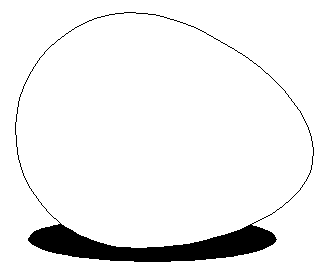|
Hi! Welcome to my Postmodernist-Kuhnian Tribute. (If you're not using IE5+, you're missing things.) (Hover over the duck.) That's All Folks! Well, almost.
Consider the humble egg. Years ago, when I was growing up, eggs were good for me. (The same held for peanut butter, cheese, and whole milk.) One couldn't eat too many eggs. Suddenly, in nutrition science, there was a paradigm shift, and eggs were bad for me. What happened? Did I change? (Yes, I grew older, if not wiser, but I didn't change in any important, relevant respect.) Did eggs change? I don't think so; hens still lay them and eggs still yield chicks.
No, I didn't change (in any relevant respect), and eggs didn't change. What changed? The minds of certain scientists studying eggs, humans, and the effects of eggs on humans. How could this change in the minds of scientists result in something, like the egg, that was once good for me becoming something that is now bad for me? What scientifically respectable causal mechanism could account for this change? Science, for all of its revolutions, has never recognized any causal mechanism that would account for such a change occurring because a small number of people changed their minds. Maybe what happened is that eggs went from be thought good for me to being thought bad for me. That's the sort of thing that science could recognize as the result of some scientists changing their minds. [Disclaimer: Kuhn, himself, might never have intended to assert anything that entails that eggs went from being good for me to bad for me.] Concluding scientific(?) postscript: Maybe, with luck, some scientists will change their minds and eggs will again be good for me.
There is more. Consider the solar system... Once upon a time, most European astronomers thought that the earth was motionless and the sun revolved around it. Then, over the course of a few years, most European astronomers came to hold that the sun was (relatively) motionless and the earth revolved around it.
Now, to hear some postmodern-Kuhnians talk, when those Europeans believed that the sun revolved around a motionless earth, that was how things were: the sun did revolve around a motionless earth. Furthermore, they assert that when those Europeans changed their minds and started to believe that the earth revolved around the sun, that is how things were: at that point the earth revolved around the sun.
I repeat: Science, for all of its revolutions, has never recognized any causal mechanism that would account for such a change occurring (think of the forces that would need to be involved) because a small number of people changed their minds. I venture to suggest that it never will. If things had occurred as the aforementioned postmodern-Kuhnians suggest, there should be evidence of the process, or event. The evidence would be of the sort that one would expect if a very massive moving object--the sun--suddenly, or over a brief period of time, went from moving rapidly to moving much less rapidly--or to changing its motion dramatically, and of the sort that one would expect if a massive moving object--the earth--went from a stop to fairly rapid movement over a brief period of time. Apart from the fact that we have evidence that some astronomers changed their minds, there is no other evidence known to suggest that such changes incredible changes occurred. Why, then, would any rational person believe that such changes had occurred? |





